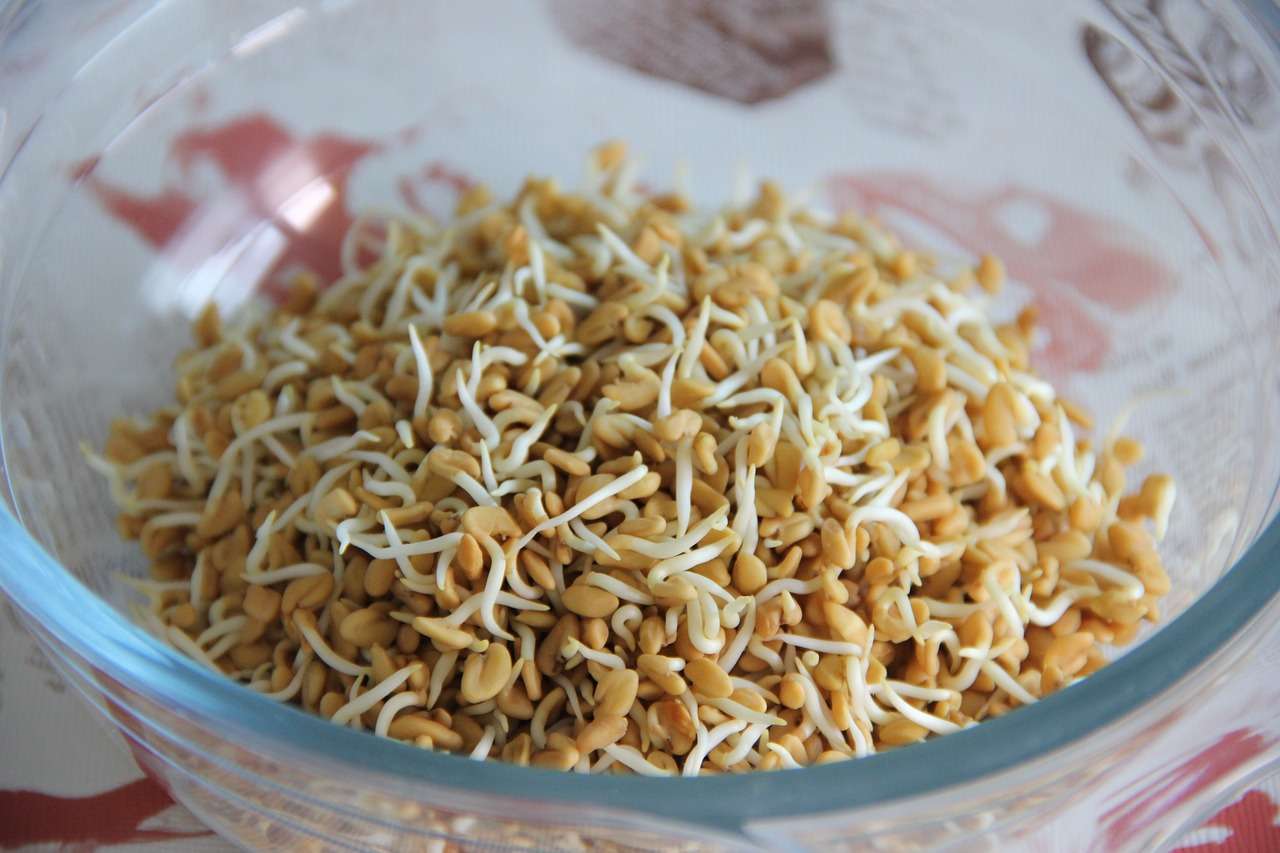Nutrition Facts of Fenugreek and Potential Health Benefits
Introduction When it comes to exploring the world of herbs with incredible health benefits and nutrition facts of fenugreek, fenugreek stands tall. This unassuming herb not only adds flavor to culinary dishes but also offers a plethora of nutritional advantages that have been cherished for centuries. In this article, we’ll delve into the nutrition facts of fenugreek and discover the remarkable ways it contributes to overall well-being. A Brief History Unraveling Fenugreek’s Ancient Origins Fenugreek, scientifically known as Trigonella foenum-graecum, has a rich history dating back to ancient civilizations. It was valued for its medicinal properties in traditional Ayurvedic and Chinese medicine. Its use has been documented for its potential to aid digestion, soothe inflammation, and boost vitality. Nutrition Facts of Fenugreek Breaking Down Fenugreek’s Nutrient Content Fenugreek is a powerhouse of essential nutrients are explained in the nutrition facts of fenugreek. It’s loaded with vitamins such as Vitamin A, Vitamin C, and various B vitamins, which play crucial roles in maintaining optimal health. Additionally, fenugreek is a mineral treasure trove, containing iron, magnesium, potassium, and calcium, all contributing to various bodily functions. Health Benefits Harnessing Fenugreek’s Health-Boosting Abilities Digestive Health Enhancement Fenugreek seeds contain soluble fiber that aids digestion and helps alleviate constipation. They also possess compounds that may protect the stomach lining, reducing the risk of ulcers. Blood Sugar Regulation Fenugreek is hailed for its potential to lower blood sugar levels. The soluble fiber it contains slows down carbohydrate digestion and sugar absorption, leading to improved blood sugar control. Heart Health Promotion The fiber, potassium, and antioxidants in fenugreek contribute to heart health. They help lower cholesterol levels, regulate blood pressure, and reduce the risk of cardiovascular diseases. Lactation Support Fenugreek has been traditionally used to increase milk production in nursing mothers. Its galactagogue properties are believed to stimulate milk flow. Culinary Uses Incorporating Fenugreek into Your Diet Fenugreek’s distinct flavor profile makes it a versatile ingredient in the culinary world. Its earthy and slightly bitter taste enhances dishes ranging from curries to soups. Fenugreek leaves, known as “methi,” are commonly used in Indian cooking, providing both taste and nutrition. Potential Side Effects Being Mindful of Fenugreek’s Potential Downsides While fenugreek offers a host of benefits, excessive consumption may lead to unwanted effects. Some individuals may experience gastrointestinal discomfort, including bloating and gas. Pregnant women should avoid fenugreek supplements due to potential uterine stimulation. Incorporating Fenugreek into Your Lifestyle Tips for Reaping Fenugreek’s Rewards Cooking with Fenugreek Experiment with fenugreek seeds or leaves in your cooking. They can be used as spices or fresh herbs, enhancing the flavor and nutrition of your meals. Herbal Infusion Enjoy fenugreek’s benefits as a herbal infusion. Steep fenugreek seeds in hot water and sip as tea, reaping its digestive and soothing effects. Conclusion Incorporating fenugreek into your diet can be a game-changer for your overall well-being due to its nutrition facts of fenugreek. From aiding digestion to regulating blood sugar and supporting heart health, this humble herb offers a wealth of advantages backed by both tradition and science. Embrace the power of fenugreek and unlock a new level of vitality. FAQs (Frequently Asked Questions) Can fenugreek help with weight loss? While fenugreek’s soluble fiber content may contribute to a feeling of fullness, it’s not a guaranteed weight loss solution. A balanced diet and exercise remain key to weight management. Is fenugreek safe for diabetic individuals? Fenugreek may help regulate blood sugar levels, but individuals with diabetes should consult a healthcare professional before making significant dietary changes. Can I use fenugreek if I’m pregnant? It’s advisable to avoid fenugreek supplements during pregnancy due to their potential to stimulate the uterus. How can fenugreek benefit my skin? Fenugreek’s antioxidants and anti-inflammatory properties may contribute to healthy skin. Some people use fenugreek pastes for face masks, but individual results can vary. Are there any allergic reactions associated with fenugreek? Allergic reactions to fenugreek are rare but possible. If you experience any adverse effects after consumption, discontinue use and seek medical attention if needed.


